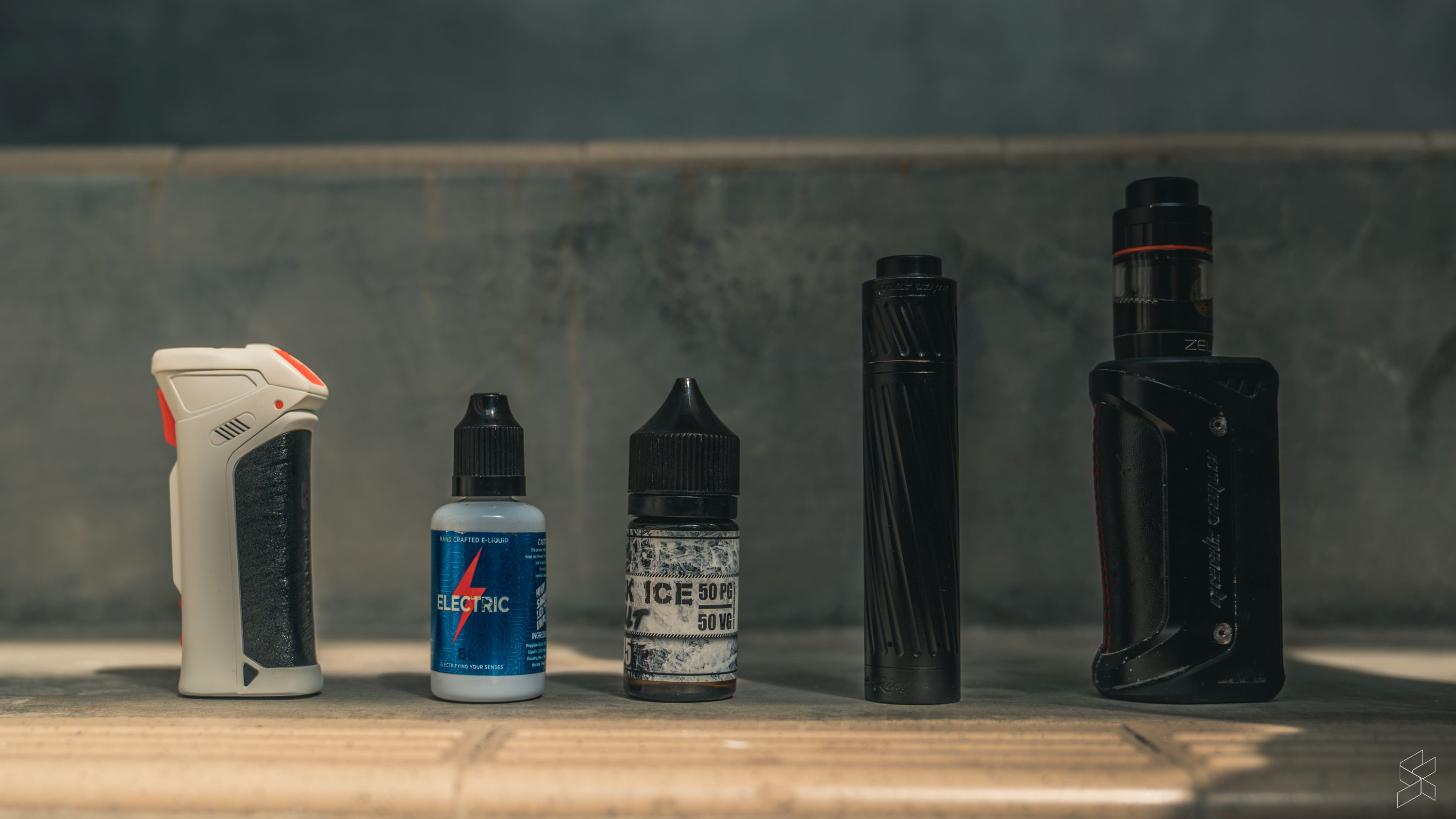As we all know, smoking is a huge health and social problem that needs to be stamped out. According to the Ministry of Health, it’s estimated that 3,500 out of 10,000 deaths in Malaysia are caused by smoking each year, so it’s clear something needs to be done. However, a proposed new bill – ostensibly aimed at wiping out the habit from future generations – is set to give the Malaysian government some terrifying new powers.
The Control of Tobacco Product and Smoking Bill 2022, which was tabled for first reading in Parliament on Wednesday, is being touted as a Generational End Game (GEG) that prosecutes those born from 2007 onwards if they possess tobacco products or substitutes such as cigarettes and vapes. These individuals, currently aged 15 at most, would essentially be banned from ever smoking – even after they have turned 18 – if this law is passed. This on its own is an admirable cause we’re happy to see the government pursue.


It’s Part 9 of the bill, ‘Enforcement’, that is greatly troubling. It spells out the powers granted to authorities if they suspect an individual of possessing tobacco products or substitutes, including the ability to open up one’s bag or package, stop and search their vehicle and forcibly open enter their home to search and seize (with or without a warrant, might we add), including body searches.
That all sounds scary enough, but the most Orwellian part of the proposed legislature is Section 34, which enables enforcement personnel to access an individual’s personal data. This includes the right for them to seize your devices – and yes, you’ll be legally required to give up the passcode/password to your phone, tablet or computer. They will also be able to make copies of said data or take extracts.
We mus not allow ourselves to be blinded to d finer details and process in our pursue for an ideal "destination". Just bcos the "destination" is good, it doesn't justify concerns on over-reaching powers which may victimise of the most vulnerable we intended to protect. #GEG
— Kelvin yii (@Kelvinyii88) July 29, 2022
It comes as no surprise, then, that the bill has attracted criticism from lawmakers and analysts alike. These include Bandar Kuching MP and chair of the Parliamentary Special Select Committee (PSSC) of Health, Science and Innovation, Dr Kelvin Yii, who urged the government to reconsider punishments against minors. He also recommended a delay of three years to give enough time to assess the government’s preparedness and the effectiveness of the plan.
Syahredzan Johan, a lawyer and DAP’s social media bureau chair, also opposed aspects of the bill, calling for them to be reined in. It’s not just the opposition who are up in arms – Pengerang MP Azalina Othman Said of UMNO, who chairs another PSSC on Women and Children Affairs and Social Development, wants to review the bill to make sure it conforms to the United Nations’ Convention on the Rights of the Child (CRC). Malaysia ratified the global treaty in 1995.
To clarify, the bill not only prohibit the sale of cigarettes, tobacco and vapes to the next generation, but also criminalises individual consumer purchase, use, and possession of such products – including smoking or vaping – with a maximum fine of RM5,000. Individuals who were born from January 1, 2007 onwards who have yet to turn 18 by the time the law goes into effect will be affected by it. The bill will be up for debate in Parliament on Monday.
What’s wrong with that? We need to be strict!
Bill gives powers to authorised officers to have access to computerised data, including asking for password.
— Syahredzan Johan (@syahredzan) July 28, 2022
1/ Can we tighten this? As it stands I can see the potential abuse.
“Bagi phone, nak check sama ada beli rokok”. https://t.co/h6s9GZZ9w2 pic.twitter.com/MUL5wZbCZJ
As health minister Khairy Jamaluddin’s special function officer Mohamed Azmadi Mohamed Samsuddin tweeted, officers gaining access to computerised data is nothing new, with provisions already written into several acts. He gave the example of the Sales Tax and Service Tax Act, which the previous Pakatan Harapan administration signed into law in 2018.
Syahredzan argued, however, that the Sales Tax Act imposes limits to said access, whereas the GEG bill doesn’t. He said that any authorised enforcement officer operating under any aspect of the act will be able to obtain personal data, making it ripe for abuse. Syahredzan added that he does not oppose the bill as a whole; he only wants certain provisions to be tightened to safeguard people’s rights.
Jawapan ini tidak menjawab.
— Syahredzan Johan (@syahredzan) July 29, 2022
Akta Cukai Jualan kuasa untuk dapat akses itu terhad kepada kuasa bawah 64, 66, 67 dan 68. Bukan semua kuasa! Akses tu hanya pada pegawai KANAN cukai jualan.
RUU GEG ni, kuasa utk dapat akses tu utk mana2 pegawai, dan utk semua kuasa bawah Akta! https://t.co/tr0EP6h23i pic.twitter.com/AnS963JuH4
There’s further cause to be concerned about the bill’s Nineteen Eighty-Four-like language. Health publication CodeBlue reported that Section 34 in its current iteration does not require suspicion of an offence before an officer is granted this power, giving them more reason to exercise their authority as they see fit. It also said the bill does not have a provision on a minimum age below which children shall be presumed not to have the capacity to commit these offences – a requirement of the CRC.
For his part, Khairy has said that offenders will not be criminalised or given jail time. In a TikTok video, the Rembau MP said his ministry is targeting the black market for tobacco products, adding that individuals that have been caught smoking will only be fined RM50. He added that the GEG bill will not contribute to the growth of the black market, instead helping to reduce public demand for cigarettes and vapes.
Why punishing offenders doesn’t pay
Malaysia isn’t the first country to propose a blanket generational smoking ban. New Zealand made headlines late last year when it unveiled plans to make it virtually impossible for those of a certain age to pick up smoking. However, the law, which is expected to come into effect in 2023, will only bar retailers from selling tobacco products to these individuals and won’t criminalise the offenders themselves. Its 2009 birth year cutoff is also two years later than Malaysia’s.
There’s evidence that punitive punishment is ineffective at actually curbing substance use. Experts at the UN say the global war on drugs infringes on human rights and disproportionately affect minorities and marginalised communities, often over low-level offences. Worse, it has only served to fuel the black market for these substances, all the while being a spectacular waste of public funds.
Governments were urged to move away from criminalising substance use and instead implement community-based measures such as rehabilitation. While this example centres around hard drugs, there are still lessons to be learned here, as more and more countries seek to curb smoking and other instances of nicotine use.
Extremism in any form or cause, isn’t good. Even with good intentions.
— Riverto Thesea (@burstaxon) July 29, 2022
Since this issue is already being politicised in social media, our stance on the matter should be made clear here. Any effort to eradicate smoking and vaping is welcome – the effect this habit has on our collective health is far too great to be ignored. But we’re also proponents of personal privacy and any infringement should not be taken lightly, especially if it can be abused for personal or political gain.
Of course, this is just the first reading of the bill, and there’s plenty of scope for it to be tweaked, as I’m sure it will be. But it’s also vital that people remain vocal about the proposal’s flaws while it is still open for amendment, in order for it to be as effective as possible – while being fair to those most vulnerable to it.








